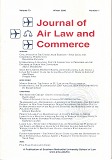FAQ #14: Did land grants work in the past, on Earth?
Although classic land grants cannot be used in space because sovereignty is prohibited, the objective of land claims recognition in space is the same as the objective of land grants on Earth: the use of property rights as an incentive to get private individuals to do something of great value to the whole society.
Much of the United States was developed by the use of land grants, from large parts of the original 13 colonies through the settlement of the West. Congress, not wanting to use government funds, used land grants to encourage the building of the transcontinental railroads.
Fortunately, the application of land claims recognition to space has a big advantage over the use of land grants for building railroads. To get a railroad built, someone (usually whoever has the best political connections) must be selected and given a monopoly over the right of way before they have proven that they can and will deliver on their promises. Railroad companies' promises were often broken. In space the system can be structured to promote real competition, rewarding only those who have actually gotten the job done, by requiring actual "use and occupation" for all property claims.

Questions & Answers about Lunar Land Claims Recognition
Note: The first 25 FAQs below are reprinted from the Space Settlement Initiative ![]() website.
website.
What is the real purpose of enacting a Lunar land claims recognition law?
What does international law say about private property ownership in space?
Can there be property ownership without national sovereignty?
What if other nations refuse to recognize land claims in space?
Why not allow smaller, limited land claims for easier steps than settlement?
Could lunar land really be worth enough money to make a difference?
What conditions should the US set for recognition of a claim?
How much land should a settlement be able to claim... and why?
Are the weaknesses and compromises in this plan likely to be permanent?
Could other sources of revenue be enough without land claims recognition?
What effect would this have on NASA and the aerospace companies?
More FAQs
The FAQs above cover basic questions about Lunar Land Claims Recognition. The following questions address more advanced issues.
If we really went to the Moon in 1969, why aren't we there now?
What were the assumptions before the Outer Space Treaty, (e.g. Robert Heinlein)?
Will changing how NASA works bring the taxpayers back on board?
Could this law force the US to recognize a foreign government's Lunar land claim?
Would Article VI of the Outer Space Treaty prohibit Lunar land claims recognition?
| Back from Did land grants work... to Frequently Asked Questions (FAQs) Back from Did land grants work... to the Space Settlement Institute home page |




